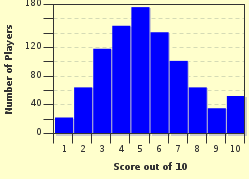Quiz Answer Key and Fun Facts
1. Benedict Arnold V was born in Connecticut in 1741 to a famous colonial family. Why was his great-grandfather, also named Benedict, famous in Rhode Island?
2. When Benedict Arnold was 13, bad investments made by his father plunged the Arnold family deeply into debt. As a result, Arnold had to drop out of school and take a job working for his mother's cousins. What business were they in?
3. With the help of his cousins, 21-year-old Benedict Arnold started his own successful business in 1762, then became a ship owner. Arnold became anti-British due to the high taxes imposed by England, but he was still a businessman in 1775 when he heard about the battles in Lexington and Concord, Massachusetts. What idea did Arnold have to benefit Boston that caused him to become an active participant in the insurrection?
4. With whom did Benedict Arnold have to share credit for the rebels' military victories on Lake Champlain in 1775?
5. After Benedict Arnold returned to Boston in the summer of 1775, he was appointed to command an expedition to attack Quebec City in a manner that many considered impossible. However, his expedition accomplished it. What manner was it?
6. For leading his troops during this "impossible" attack on Quebec in 1775, Benedict Arnold was compared to what legendary military leader?
7. On December 31, 1775, the Colonial armies under General Richard Montgomery and Colonel Benedict Arnold staged a surprise New Year's Eve attack on Quebec City but failed to seize it. What happened to Arnold?
8. Ultimately, the American invasion of Canada in 1775 and 1776 collapsed, in large part due to illness among the troops. What illness befell the American troops in huge numbers during the spring of 1776?
9. Although the ships that Brigadier General Benedict Arnold had seized for the rebels in 1775 controlled Lake Champlain during the spring and early summer of 1776, Arnold realized that the British would build their own ships. Ultimately control of the lake would rest on a naval battle. Unfortunately, the British had better sailors and more men and materials. What type of ship did Arnold's army build in an effort to overcome this disadvantage?
10. Although the British won a solid victory in the Battle of Valcour Island in October 1776, largely destroying the American fleet under Brigadier General Benedict Arnold, historians generally consider the battle a major success for Arnold. Why?
Source: Author
AyatollahK
This quiz was reviewed by FunTrivia editor
bloomsby before going online.
Any errors found in FunTrivia content are routinely corrected through our feedback system.

